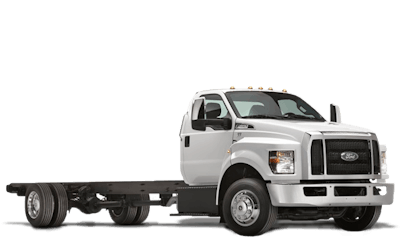
Roush CleanTech announced today that it has received California Air Resources Board certification for 2023 model year propane engines at 0.02 grams per brake horsepower-hour.
Previously available as an added-cost option, the ultra-low nitrogen oxide (NOx) emissions package is now standard on every propane engine sold by Roush CleanTech.
The engines emit 90% less NOx emissions than allowed under 2023 regulations, and are 60% cleaner than California’s 2024 low-NOx standard. Roush reports that it reached those metrics without compromising performance or efficiency.
“Customers can rest easy knowing that ROUSH CleanTech propane engines provide ultra-low NOx emissions with no added cost today. And, we are well on our way to meeting California and EPA’s emissions standards for 2027 and beyond,” said Todd Mouw, executive vice president at Roush CleanTech.
Fleet operators purchasing 2023 models will have a greater chance of accessing state and federal funds that incentivize near-zero emission vehicles, including the Infrastructure Investment and Jobs Act’s Clean School Bus Program and the Volkswagen Environmental Mitigation Trust settlement, among others.
As a leading alternative fuel technology company, ROUSH CleanTech first released low NOx engines in 2018. In 2021, Roush CleanTech was the first manufacturer to receive CARB’s ultra-low 0.02 grams per brake horsepower-hour certification for Blue Bird school buses and commercial vehicles.
“We didn’t wait for the regulation to go into law. We already achieved it,” Mouw said.
Roush CleanTech’s newest technology and a growing renewable propane supply, according to Mouw, demonstrate how the fuel is no longer simply a bridge to help fleets reach U.S. emissions goals, but rather a destination transportation energy. Fleets using renewable propane operate with the same power and reliability as conventional propane. Renewable propane has an ultra-low carbon intensity and at the point of combustion it is actually carbon neutral.
Nitrogen oxides are a group of gases known as a primary contributor to acid rain, smog and other air quality issues. According to the Environmental Protection Agency, exposure to NOx can trigger health problems, such as asthma and other respiratory issues, especially in children. Conversely, the EPA states that operating vehicles with ultra-low emission engines can make significant improvements to regional air quality and reduce a wide variety of human health impacts.
There are more than 37,000 advanced clean vehicles equipped with ROUSH CleanTech’s engines on the road today, including 18,500 school buses in 1,000 U.S. school districts.
“Our propane autogas engines reinforce ROUSH CleanTech’s commitment to provide vehicle solutions that reduce the impact to the environment while leveraging an abundant, domestically produced fuel that costs less than diesel. We double down on that commitment every year,” said Mouw.








